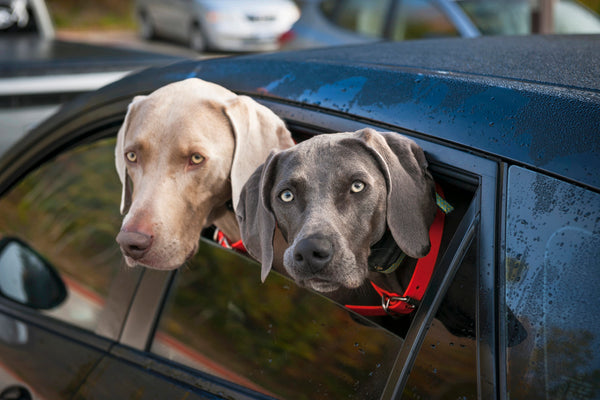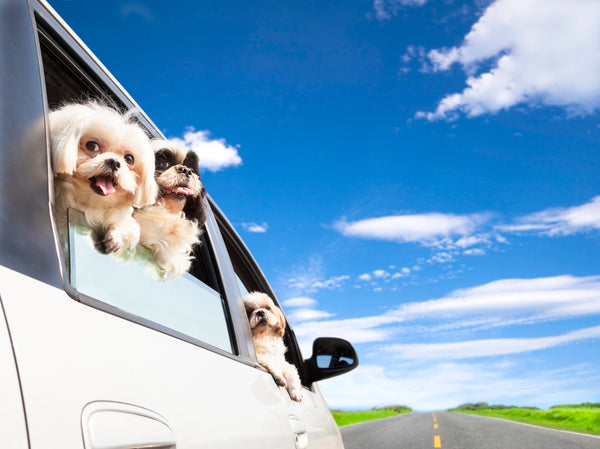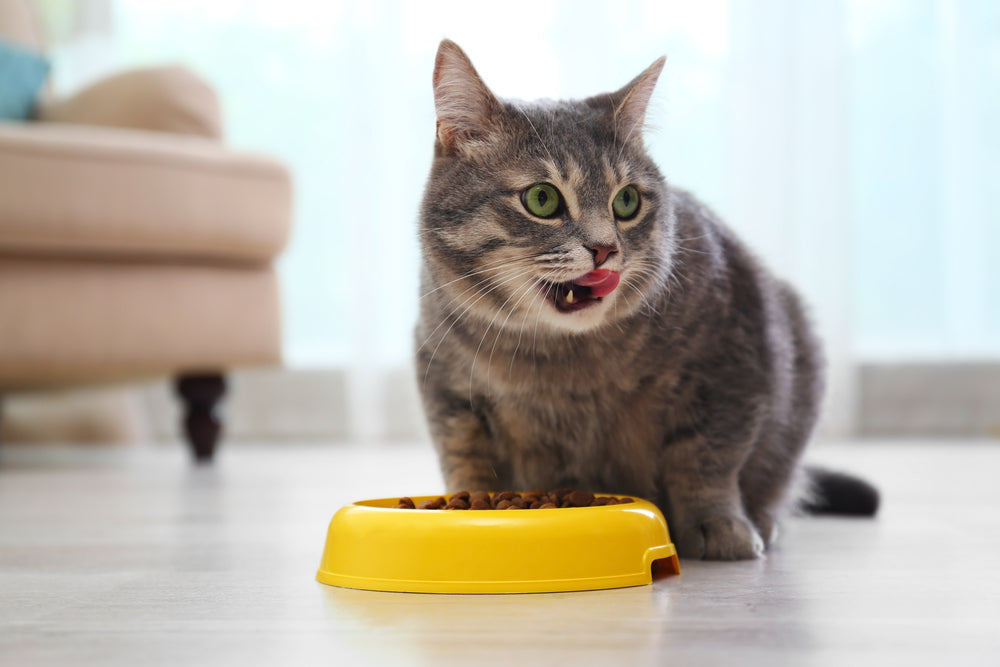Car Sickness In Dogs: Causes, Symptoms, & Treatments

Car sickness in dogs can transform joyous car trips into stressful journeys for both pet and owner. This common issue, often from motion sickness or travel anxiety, affects many dogs, particularly puppies whose inner ear structures are not fully developed yet. Symptoms like vomiting, licking lips, and unease indicate your dog may suffer.
Fortunately, effective treatments and preventive measures, such as ensuring the car is well-ventilated, help reduce sickness. For persistent cases, consult your vet about anti-nausea or anti-anxiety medications.
Gradually acclimating your pet to car travel through short, positive experiences may help your dog associate car rides with fun, not fear. This guide will explore causes, signs, and solutions to help your dog enjoy every journey.
Why Does My Dog Get Car Sick?

Just like children are more affected by motion sickness than adults, so are puppies. The anatomy of the ear structure, particularly the inner ear involved in balance, has yet to develop in puppies fully. Some dogs outgrow motion sickness of this nature, while others, unfortunately, don't.
Another cause of motion sickness is conflicting sensory signals sent to the brain's emetic, or vomiting, center. In other words, the inner ear signals from the vestibular system conflict with signals from the eyes, and this mismatch results in nausea and vomiting.
Behavioral issues can also trigger motion sickness in dogs. Your dog may even have a previous traumatic experience related to car rides that may contribute to his negative perception of the car, especially if your dog knows you are on the way to the vet.
As mentioned, puppies seem more susceptible to motion sickness than adult dogs. The good news is that motion sickness in puppies usually resolves with age.
Motion Sickness Symptoms
Observe if your dog shows these symptoms every time you take road trips.
- Severe drooling
- Whining
- Yawning
- Vomiting
- Restlessness
- Excessive panting
It's important to note here that some dogs show no car sickness symptoms.
How Do You Treat Dog for Motion Sickness?
Desensitization
If motion sickness is fear or anxiety-based, a desensitization program or training may help. This program involves gradually introducing stronger stimuli to a dog until he becomes accustomed to its full effect. Help your dog get used to the car and alleviate any car-related anxieties by putting him in the car with you for a few minutes each day. Don't turn the car on or drive anywhere at first.
As your dog gets used to the car, gradually start or drive around the block. Bring a toy, their favorite blanket, or anything comforting to help him calm down and make the car feel more familiar.
Do this until he shows more enthusiasm or comfort concerning the car. The trick here is to progress slowly during the first few days. Every time he does not get sick, he increases the amount of travel he takes.
If he gets sick, move the process backward until he is not ill again. Show your dog that car rides can be enjoyable and trouble-free. Make sure he associates car rides with positive things, like a hike or visiting a dog park.
Natural Remedies
Natural remedies are the easiest to obtain. However, always consult a vet beforehand. Your dog may have allergies or sensitivities to some natural remedies, which can cause effects in dogs with comorbidities, such as bleeding disorders, or dogs taking anticoagulants or nonsteroidal anti-inflammatory drugs (NSAIDs).
Calming Supplements
You can give your dog calming oral supplements like Solliquin, Composure, or Rescue Remedy to calm them during car rides. Some may need to be taken daily for a few days or weeks for maximum benefit. These products are generally safe for most dogs since they have few adverse side effects. As always, consult your vet before administering any supplements.
MOTION SICKNESS MEDICATIONS FOR DOGS
As a last resort, your vet can possibly recommend the following medications:
- Benadryl/Dramamine: Over-the-counter options may be used for motion sickness in dogs. Both products have antihistamines that may have sedative effects and can be administered every 8 hours. If your dog takes Dramamine with food, they may better tolerate it. Benadryl, however, can cause potential gastrointestinal side effects such as vomiting, diarrhea, and decreased appetite.
- Anti-anxiety Medication: Anxiety in the car can cause motion sickness, so anti-anxiety medications may be necessary for extreme cases, along with behavior modification.
Preventing Motion Sickness in Dogs

1. Ensure your dog can look out the window
As dog motion sickness is often worse for dogs who are sick in the back of your car, have your dog sit in front while looking out the window. It can help equalize pressure and minimize adverse effects on your dog's vestibular system.
2. Use a car restraint
If your dog suffers from car sickness, a dog car seat like the Snuggle Pocket pictured above, a harness with a seat belt, or a travel crate are all good ideas. These products lower the risk that sudden movements or a sudden change in position may trigger nausea.
3. Avoid car rides on a full stomach or immediately after meals
A full stomach can aggravate motion sickness and make your dog more likely to vomit, so try adjusting your dog's feeding schedule before a car ride. Avoid large meals and feed them two hours before leaving so that all the food is digested and out of the stomach before you leave.
Best Solutions for Dogs Who Get Car Sick
Bringing our dogs along for the ride is always fun for the entire family. However, it can no longer be enjoyable when dogs get car sick. Puppies are known to experience more car sickness than older dogs because their inner ears are not yet fully developed. However, as your puppy grows, the chances of your car sickness lower. Yet, some dogs never grow out of getting car sick.
Anxiety medications, over-the-counter medications, and calming supplements are used to help reduce motion sickness in older dogs. However, always consult your vet before introducing new medications to your dog.
For those looking to ensure their pets travel in comfort and safety, Petmate offers a range of high-quality travel accessories designed with your dog's needs in mind. Our products can make your next family adventure enjoyable for everyone, including your furry friends, from travel kennels to vehicle booster seats and more. Shop at Petmate for the best brands.
Previous article

Next article

Related posts
View all-

Wet Vs. Dry Cat Food: Which is Better?
As a caring cat owner, you always want the best for your furry friend, especially with their food. You typically have two choices: dry cat food in a bag or canned wet food. Whether you've just brought home a new kitty or are looking to transition to a new food, the decision process can be overwhelming, and understanding the impact of each on your cat's diet is essential. Read Article -

Celebrate National Pet Week: Fun Ideas to Celebrate with Your Pet
National Pet Week is right around the corner, so it's time to plan how you're going to celebrate! While we're sure you celebrate your pet all day every day... Read Article -

5 Simple Tips to Make Sure Your Cat Drinks Enough Water
Ensuring your cat stays hydrated is important, but it can be challenging since many cats don't drink enough water. Dehydration can lead to kidney disease and other health issues. Fortunately, you can encourage your cat to drink more with a few simple changes. Read Article



